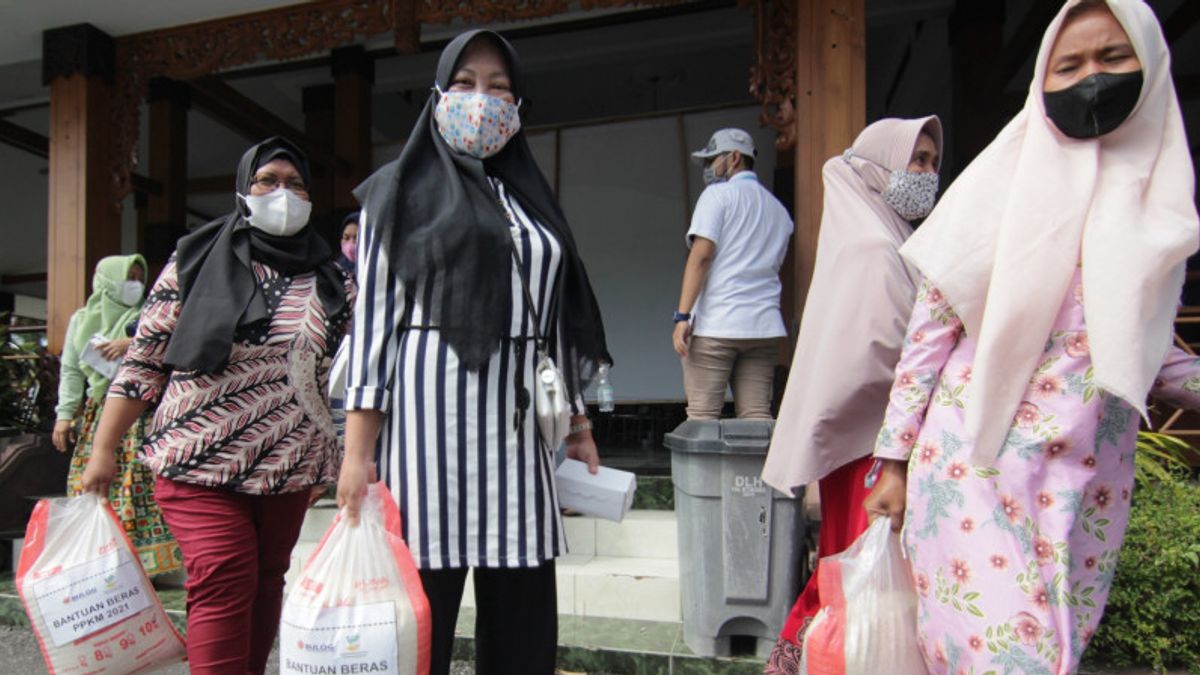JAKARTA - The Inspector General (Irjen) of the Ministry of Home Affairs (Kemendagri) Tumpak Haposan Simanjuntak explained the mechanism for monitoring the distribution of COVID-19 social assistance (bansos) implemented by the Government Internal Supervisory Apparatus (APIP).
There are four stages carried out by APIP in supervising the distribution of social assistance, namely program review, supervision during implementation, providing assistance when completing the administrative process, and the last is post-audit.
"(First) compare the list of beneficiaries (DPM) with the types of benefits received," said Tumpak, quoted by Antara, Wednesday, July 21.
Tumpak explained that the purpose of APIP to make comparisons was to avoid over-earning, or get more benefits than the amount that should have been received.
The DPM will be obtained through data provided by the Ministry of Social Affairs (Kemensos) and adjusted to changes in the new list of poor people. The changes in the data, said Tumpak, were caused by the economic condition of the people who became dynamic in the midst of the pandemic.
Then, the stage that is carried out after ensuring the compatibility between DPM and the types of benefits received is supervision during distribution. APIP will assist the implementation of social assistance together with the Financial and Development Supervisory Agency (BPKP) in the context of verifying data.
"To see if (the social assistance) is right on target and whether the amount is right," said the Inspector General of the Ministry of Home Affairs when explaining the supervision carried out during implementation.
In addition, Tumpak also mentioned that the Indonesian National Army (TNI) and the Indonesian National Police (Polri) would also be involved in conducting surveillance. This aims to guard the accountability of the distribution of social assistance during the pandemic.
"There should be no fraud or irregularities," Tumpak added.
The third stage is to provide assistance when completing the administrative process, in this case, the process of preparing reports by the local government.
"So that compliance and assurance of the accountability report can be guaranteed," said Tumpak explaining the purpose of assistance during the completion of the administrative process.
また読む:
The last stage is to do a post-audit. This is done by APIP because each region has a social assistance program.
"There should be no duplication, wrong targets, wrong list of recipients, and so on," said Tumpak explaining the points that are important aspects of conducting an audit.
During the post-audit, APIP will also compare the incoming data with conditions in the field to ensure conformity as determined at the review stage.
The English, Chinese, Japanese, Arabic, and French versions are automatically generated by the AI. So there may still be inaccuracies in translating, please always see Indonesian as our main language. (system supported by DigitalSiber.id)

















